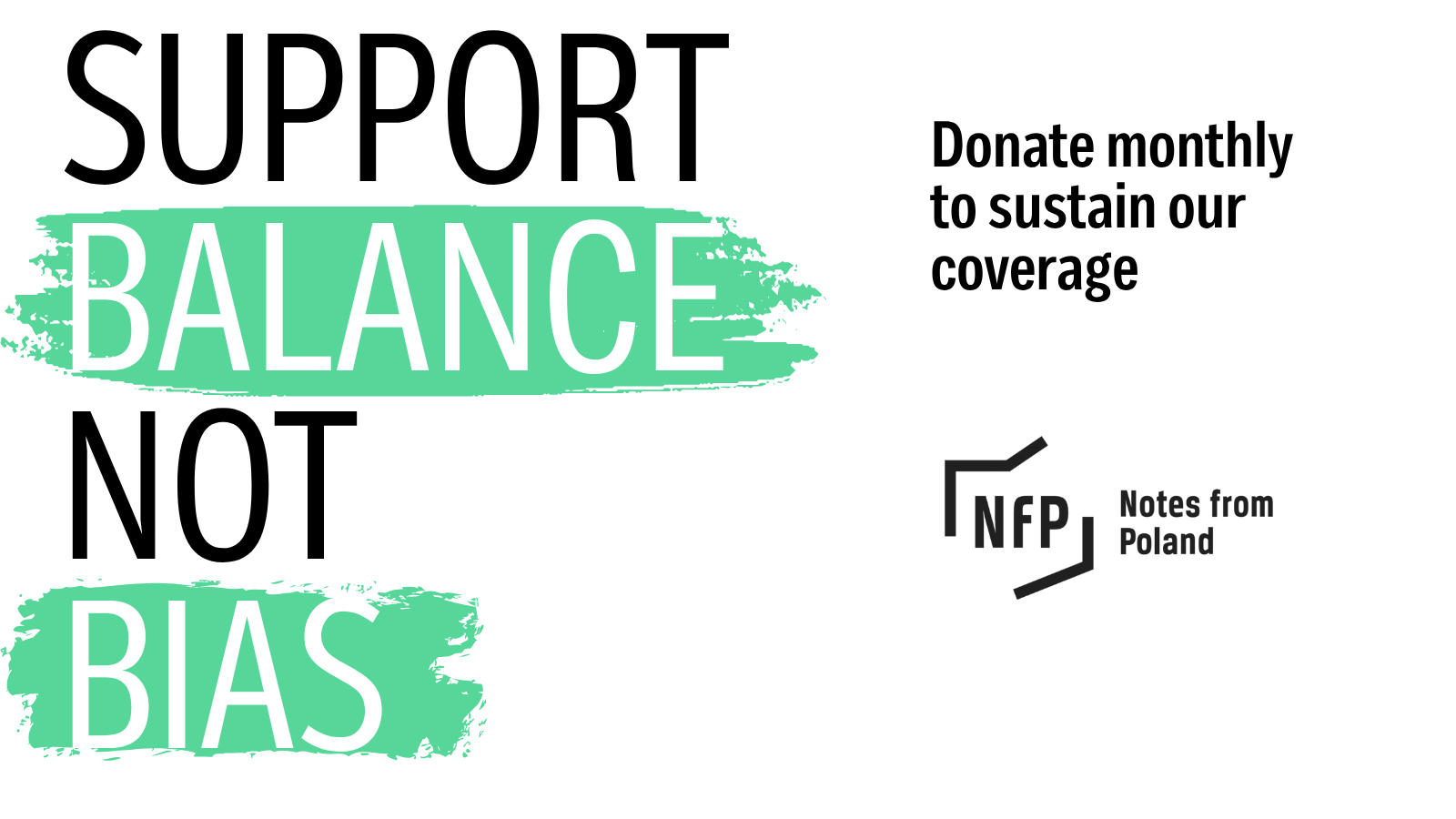Keep our news free from ads and paywalls by making a donation to support our work!

Notes from Poland is run by a small editorial team and is published by an independent, non-profit foundation that is funded through donations from our readers. We cannot do what we do without your support.
New academic research suggests that the areas in Poland which introduced anti-LGBT+ resolutions subsequently saw an increase in people seeking to move away, with data showing in particular that young residents – and especially young women – left.
Between 2019 and 2020, over 100 local authorities in Poland adopted anti-LGBT+ resolutions. Some declared themselves “free from LGBT ideology”, while most adopted “Charters of Family Rights” that declared marriage to be exclusively between a man and a woman and pledged to “protect children from moral corruption”.
However, the resolutions – which were mainly symbolic, with no legal consequences – were gradually repealed, primarily due to the threat of losing European funds. The final resolution, in the town of Łańcut, was revoked in April this year.
The last of Poland's anti-LGBT+ resolutions – which once covered a third of the country – has now been withdrawn.
It was repealed due to the threat of losing EU funds, as were many of the over 100 other resolutions previously adopted by local authorities https://t.co/XrNyQrCKhz
— Notes from Poland 🇵🇱 (@notesfrompoland) April 27, 2025
In a newly published discussion paper, Pawel Adrjan, an economist at the University of Oxford, and Jan Gromadzki, from the Vienna University of Economics and Business, sought to assess the impact of the resolutions and the rhetoric around them.
They analysed job search behaviour in places with such resolutions, and compared it to neighbouring areas. The researchers examined 67 million clicks on job advertisements made by Polish users between 2016 and 2021.
They found that, after the adoption of anti-LGBT+ resolutions, residents in those areas significantly increased their searches for jobs outside their home region. Searches for jobs in other Polish municipalities rose by around 12%, while searches for jobs abroad increased by approximately 15%.
Both within Poland and across Europe, job seekers focused on regions perceived as LGBT+ friendly. In Poland, searches concentrated on areas that had not passed anti-LGBT+ resolutions. Internationally, the most popular destinations were countries where same-sex marriage is legal, such as Germany and the UK.
The researchers also observed that job searches for positions abroad were particularly high in regions with anti-LGBT+ resolutions that had not previously shown strong support for far-right parties.
“If you’re in a place that’s extremely conservative and consistently votes for far-right parties, you’re not surprised when it adopts such a resolution,” Gromadzki, one of the authors, told Notes from Poland.
“But if you’re in a region with only moderate support for [such] parties and it suddenly introduces this kind of declaration, it’s a shock. That shock leads people to update their beliefs about the local social norms.”
For the first time in six years, Poland is not ranked as the EU's worst country for LGBT+ people.
It is now second from last, having overtaken Romania in the latest annual Rainbow Map published by @ILGAEurope https://t.co/PtLdFtxL2L
— Notes from Poland 🇵🇱 (@notesfrompoland) May 16, 2025
The authors were limited in the personal data they could access: they did not know the job seekers’ age, gender or sexual orientation, only the region they were searching from and where they were looking for a new job. However, they were able to observe the types of job postings people clicked on.
Gromadzki notes: “We expected the strongest effects for high-paying jobs, but actually, we saw increased interest across the board. In all occupational categories – low, middle, and high-paying – job search activity went up.”
To determine whether the increased intensity in job searches had a real impact on migration flows, the researchers turned to census data.
They found that, in the affected counties, the population of people aged 18 to 27 declined by about 1% compared to neighbouring areas. After ruling out other factors such as birth and death rates, they concluded that the rise in job searches likely correlates with actual outward migration.
Poland’s government has approved plans to add sexual orientation, gender, age and disability to the categories covered by Poland’s hate crime laws.
Those guilty of insulting or inciting hatred against such groups could be jailed for up to three years https://t.co/VtinJzZrHD
— Notes from Poland 🇵🇱 (@notesfrompoland) November 28, 2024
Even so, the researchers cannot say for certain whether LGBT+ individuals were the ones leaving. Indeed, Gromadzki believes the rhetoric may have affected a broader group.
“I think it also impacted allies, friends, families – and even young parents who feared that if their children turned out to be LGBTQ, they would grow up in a homophobic and transphobic environment. That fear may have motivated them to seek better opportunities elsewhere,” says the researcher.
“This isn’t just a migration story – it’s much broader,” he adds. “We already know that the LGBT+ resolutions affected people’s mental health and had political consequences. So even though it was ‘just words’, they had real power to change people’s lives
The head of a conservative group that sends out vans covered in slogans linking LGBT people to paedophilia has lost his appeal against a defamation conviction.
The court found the slogans to constitute "hate speech" and to defame LGBT people as a group https://t.co/3FRHuAUVqg
— Notes from Poland 🇵🇱 (@notesfrompoland) January 19, 2024
The census data also indicated that it was primarily young women who left the affected regions. The authors suggest this is unsurprising, as anti-LGBT+ rhetoric often goes hand in hand with conservative views on women’s rights and traditional gender roles.
Furthermore, young women in Poland often have more socially progressive views than men in their age group.
Adrjan and Gromadzki’s findings were published by IZA – Institute of Labor Economics, a non-profit research institute based in Bonn, Germany. The discussion paper has not yet undergone peer review.
Young Poles are bucking the international trend by turning out at a higher rate than the oldest voters in recent elections.
We spoke with experts and young voters to find out more about the growing frustrations that are driving this political engagement https://t.co/y1JpYYmbjb
— Notes from Poland 🇵🇱 (@notesfrompoland) August 11, 2025

Notes from Poland is run by a small editorial team and published by an independent, non-profit foundation that is funded through donations from our readers. We cannot do what we do without your support.
Main image credit: Max Bashyrov/Flickr (under CC BY-NC 2.0)





















